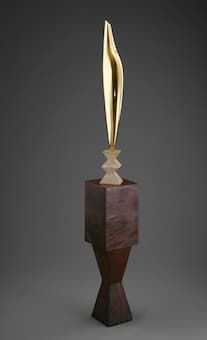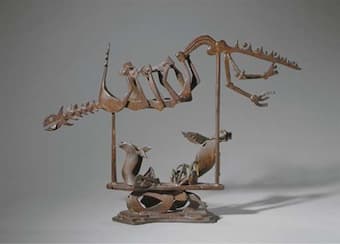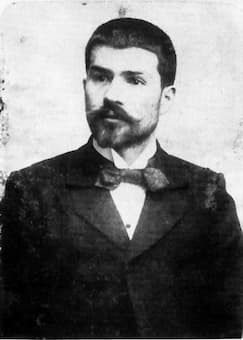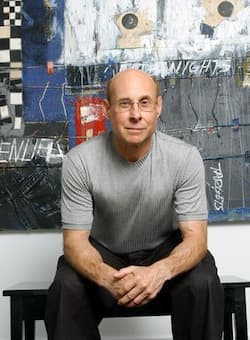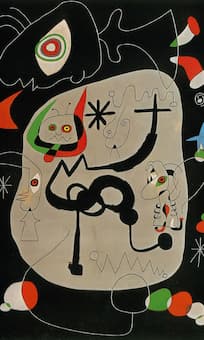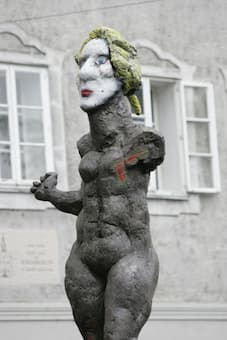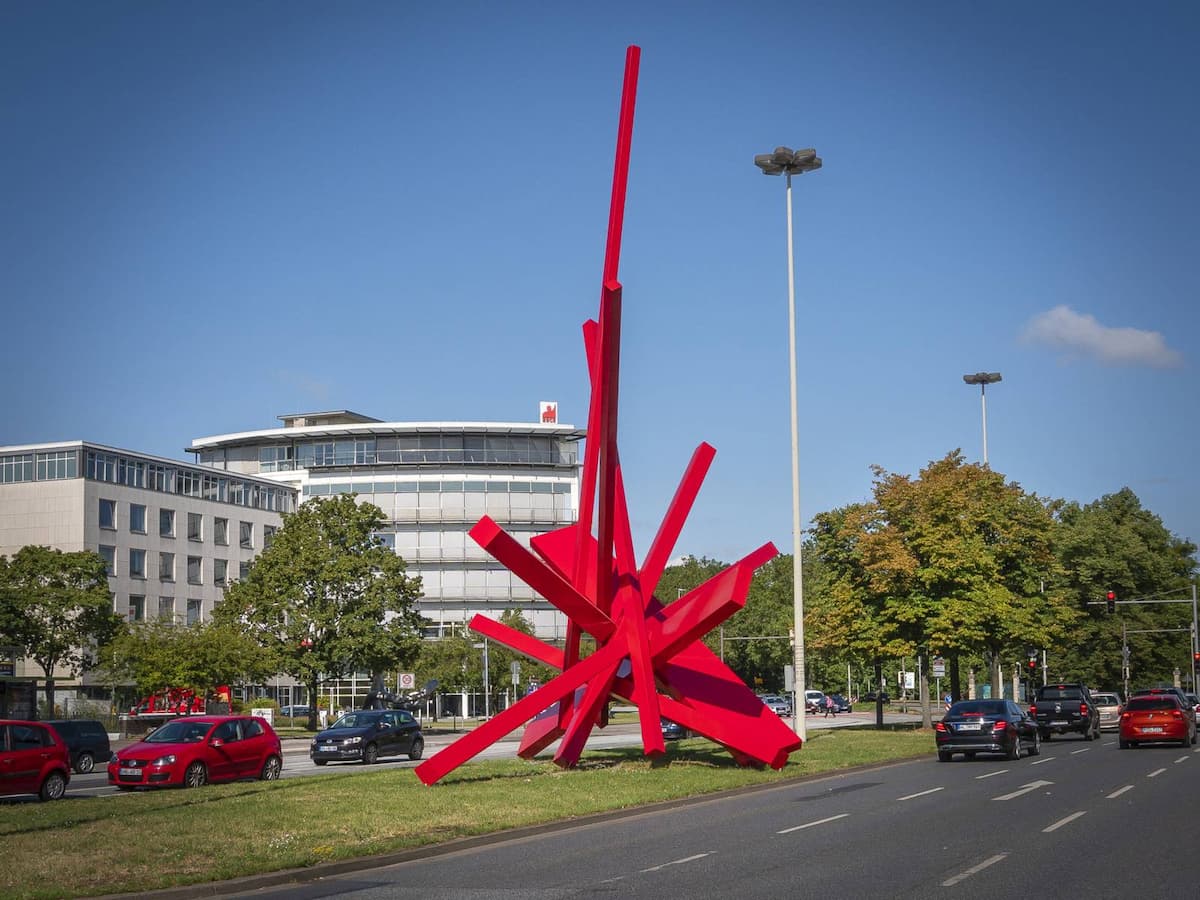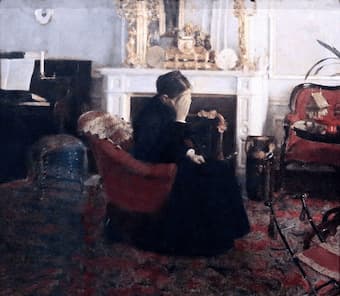George Antheil: The Golden Bird Slimmed down to just a shadow of a profile, the Golden Bird launches itself upward. Its feet and tail are streamlined down to just minimal forms and the bird is topped with an upturned beak,
Sculpture
Most composers who look to art for inspiration look to paintings. A few, however, look to sculpture and one composer who look at four very different artists for a similar theme was Virko Baley (b. 1938). This Ukrainian-American composer began
“Work like a slave; command like a king; create like a god” The majority of photographs taken of French-Romanian sculptor Constantin Brâncuși (1876-1957) show a kind of Grizzly Adams, a man with unkempt hair, long beard, a deeply lined face
American sculptor Alexander Calder (1898-1976) was known not only for his distinctive mobiles but also his ‘stabiles,’ non-moving sculptures. One of his best-known ‘stabiles’ is Cirque Calder (Calder’s Circus), a collection of over 70 miniature figures and animals with over
Thomas Mann (1875-1955) won the Nobel Prize for literature in 1929 for his highly symbolic, ironic and epic novels and novellas. A determined social critic, his writings provide biting insights into the psychology of the artist and the intellectual within
The city of Salzburg rose from a small Celtic settlement into a powerful economic center because of its trade in salt. The city regulated the collection of tolls and taxes from barges ferrying salt from the northern part of the
The internationally renowned sculptor John Henry has produced a substantial number of monumental and large-scaled works across the United States, Europe, and Asia. His sculptures resemble huge welded steel drawings, “arranging linear and rectilinear elements that appear to defy gravity
The Belgian Symbolist painter and sculptor Fernand Khnopff (1858-1921) is best known for his paintings that blend precise realism with a dreamlike atmosphere. His scenes are quite realistic, but then he mixes in motive and ideas from history and the

